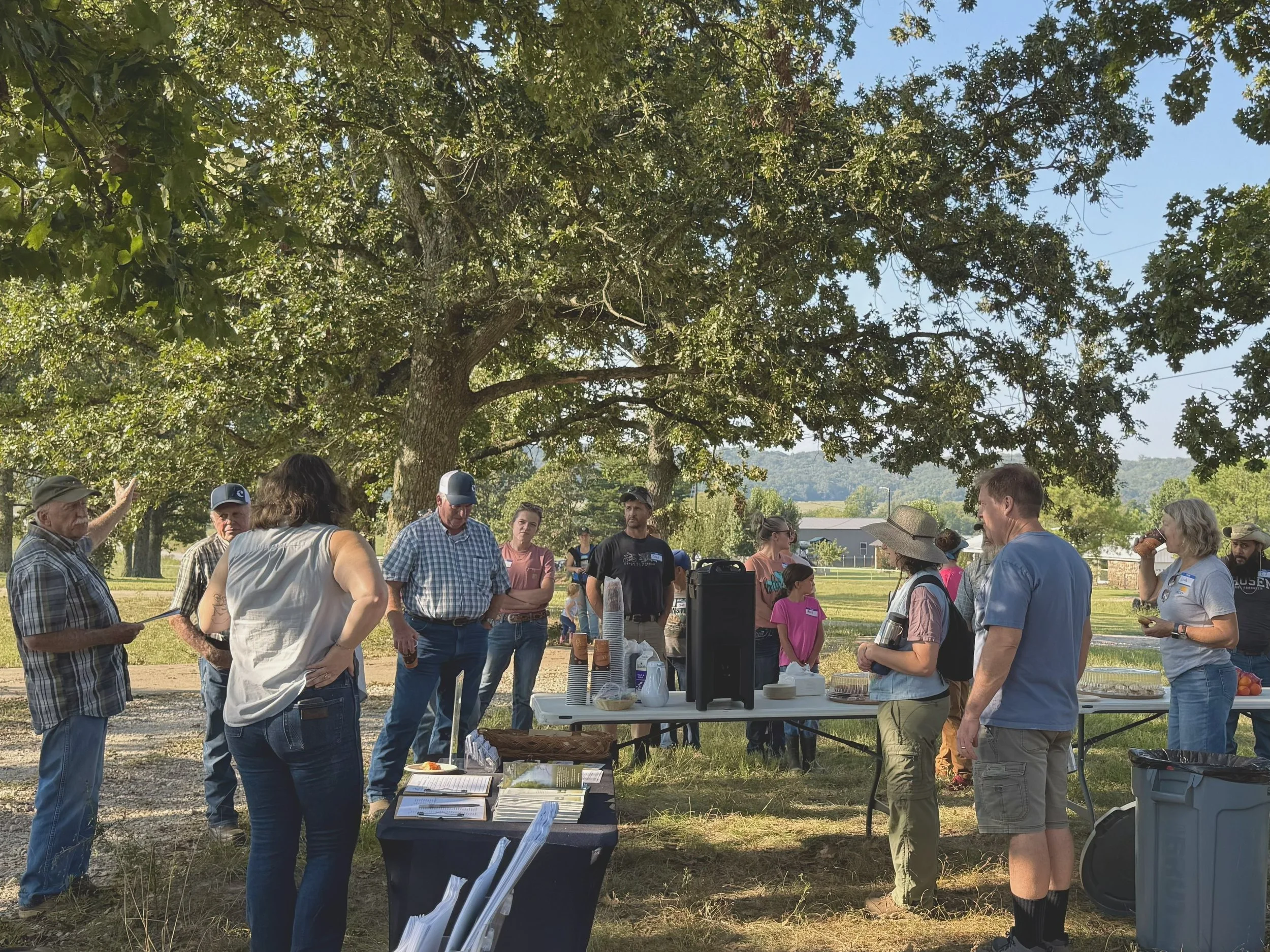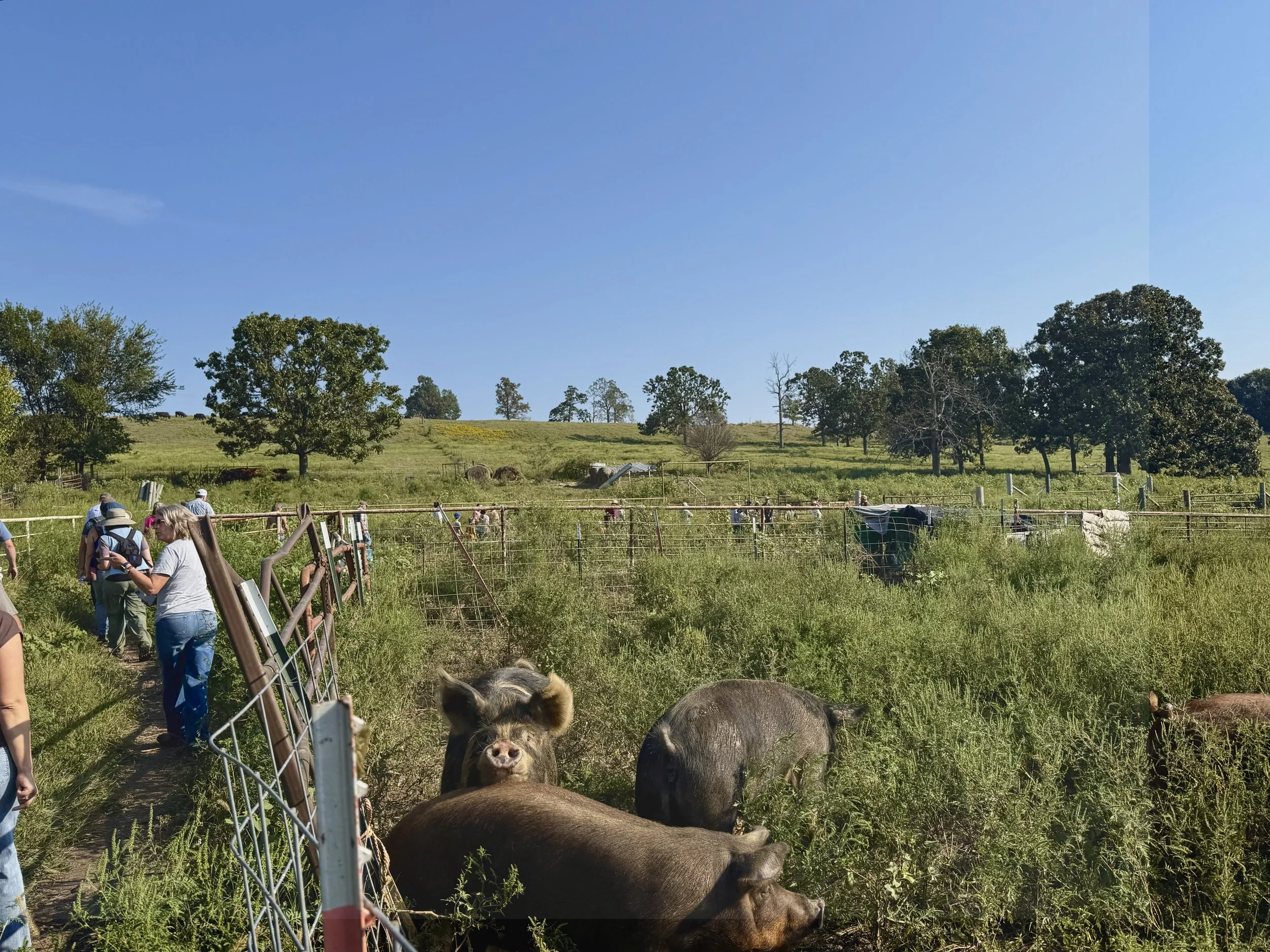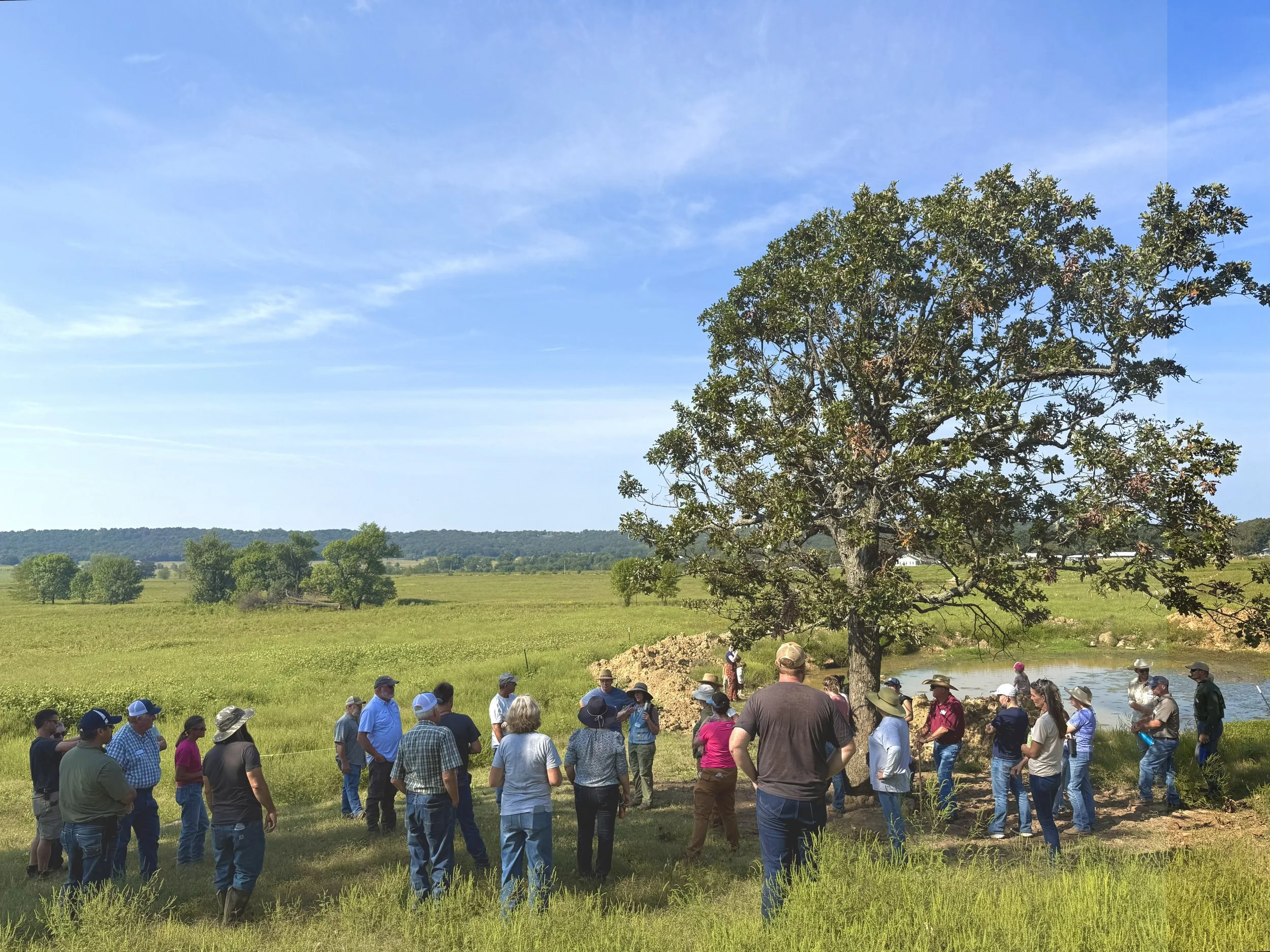Pastures with Purpose: Wet Prairie
The Illinois River Watershed Partnership and the Grassroots Grazing Group hosted a pasture walk on Saturday, September 13th, 2025 in Lincoln, AR.
Our group got an inside look at Coffey Farms, also known as “Wet Prairie” by locals, run by brothers Jim and John Coffey, with lots of help from John's wife, Mallory, and their two children, Stella and James. Together, along with a small collective of other local farmers, they raise pasture-raised livestock including cattle, sheep, goats, pigs, and chickens that they direct-market to local consumers through Ozark Pasture Meats.
Breakfast and hearing from mentors.
To help kick off the pasture walk the group heard from Dr. Ron Morrow, a mentor to many local rotational grazers. He shared about the differences in Volatile Fatty Acids (VFAs) present in grass-fed beef versus grain-fed beef. Grass-fed beef is typically higher in healthy Omega 3 fatty acids.
Dr. Ron Morrow was one of the founding members of the Grassroots Grazing Group, a collective of farmers that practice regenerative grazing. This group meets at local farms throughout the year to provide a chance for producers to network, share resources, and look ahead on their operations. If you are interested in joining the email newsletter to hear about future GGG events (separate email list from IRWP), you let Sarah know by email at sarah@irwp.org.
Ozark Pasture Meats raises multiple species of pasture-raised livestock - including pigs!
The pasture walk began next to the hog pens where John Coffey has been recently expanding his operation. Historically, they have been raising hogs for pork, but now they have begun farrowing (term for a pig giving birth and raising young) to provide good-quality hog genetics to other local farmers.
To combat invasive plant species, this farm is turning to livestock!
Certain livestock, like goats, are able to consume woodier invasive plant species (like the Cocklebur in the photo), converting this unusable and undesirable plant into a high-quality meat product for the farmer to sell. All the while the farmer can avoid using chemical management like herbicides.
A win-win-win!
We looked at multiple ponds on the farm and hear what worked best for their operation.
This farm has multiple ponds across the property, and this makes it easier to implement rotational grazing since water access can be one of the most limiting variables behind a rotational grazing plan. One of the ponds has a limited access point, previously installed by the Natural Resource Conservation Service (NRCS).
There are NRCS offices available in each county that are ready to provide technical assistance to landowners/producers that want to implement conservation practices on their operation. If you are interested in these resources but aren’t sure where to begin, please email your property address and any natural resource concerns to sarah@irwp.org to get started! We can help guide you from there.
We discussed tips and tricks to a successful tree planting.
“When is the best time of the year to plant trees?”
“What types of trees should I plant here?”
“What equipment/planning do I need to do in order to get these trees in the ground?”
This is just some of the discussion held among the cohort from this Pasture Walk while in the field.
TJ Hein with Savanna Springs LLC shared some insights on what has helped trees survive in their restoration plantings. A lot of tree survivability following a tree planting comes down to:
1. Timing of the year - Fall is optimal for planting, Spring works too.
2. Proper site preparation - removing potential plant competition.
3. Sourcing trees from a local nursery - means they are more adapted to climate/region, and more likely to survive.
4. Diversity/Age of tree species planted - planting a collective of diverse young, native trees yields best results!
Feedback from a Pasture Walk Attendee:
“I enjoy meeting people and hearing how they approach challenges—it’s always energizing to connect with others who share an interest in rotational grazing. It’s fun to introduce folks to new ideas, helpful resources, and to each other. Learning out in the pasture, instead of behind a screen, makes it even better. Thanks so much for sponsoring and supporting these kinds of hands-on experiences!”
If you are interested in addressing your natural resource concerns on your property, please visit our Landowner Services page to learn how we can provide the technical assistance and resources to support your efforts.





